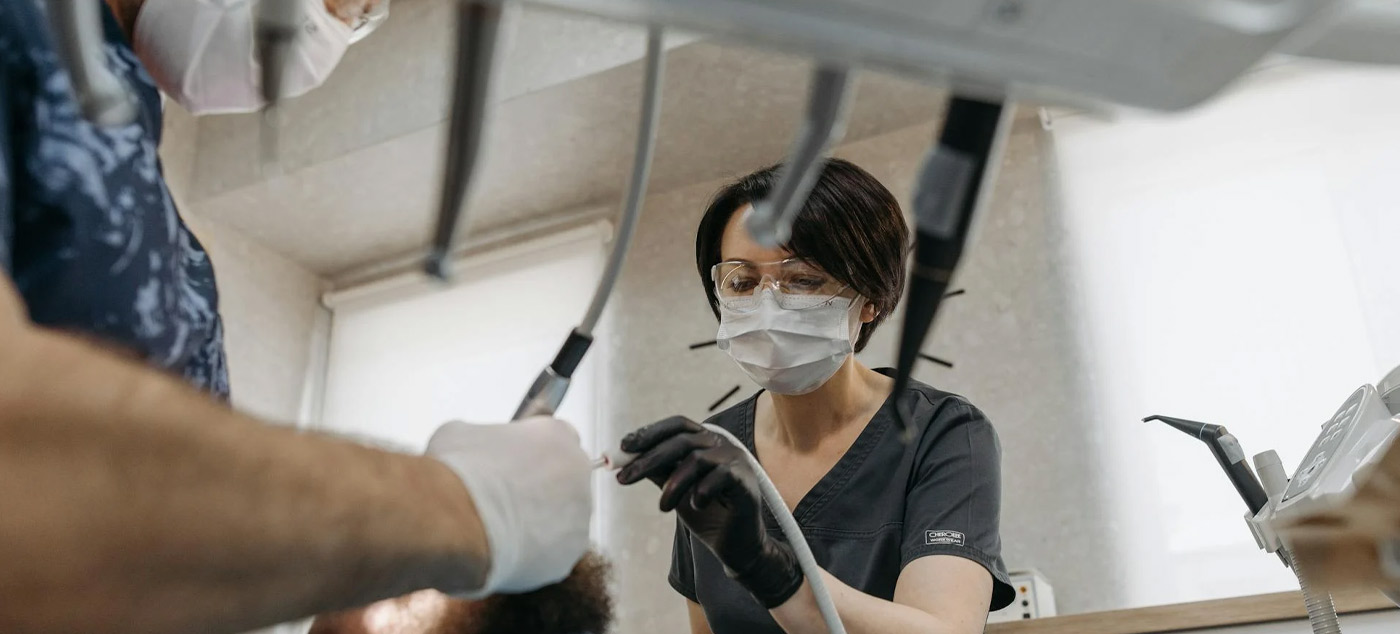The Difference Between Dental Assistant vs. Dental Hygienist
When you visit the dentist, you’re likely to encounter both dental assistants and dental hygienists. While both play crucial roles in ensuring you receive the best care, their duties, responsibilities, and educational paths differ significantly. Understanding these differences can help you appreciate the distinct contributions each professional makes to your dental health.
Roles and Responsibilities
Dental Assistant: Dental assistants are often the first point of contact for patients during a dental visit. Their primary role is to support the dentist and ensure that procedures run smoothly. Some key responsibilities include:
- Patient Care: Dental assistants prepare patients for treatments, ensuring they are comfortable and informed about the procedure.
- Assisting the Dentist: They hand tools to the dentist during procedures, manage suction devices, and help with tasks like taking impressions or applying topical anesthetics.
- Administrative Duties: Dental assistants may handle scheduling appointments, managing patient records, and billing.
- Infection Control: They sterilize instruments and maintain a clean environment, adhering to strict hygiene protocols to prevent infections.
Dental Hygienist: Dental hygienists, on the other hand, focus more on preventative care and patient education. They work independently, often with minimal supervision from the dentist. Their main responsibilities include:
- Teeth Cleaning: Dental hygienists perform thorough cleanings, removing plaque, tartar, and stains from teeth.
- Patient Education: They educate patients on proper oral hygiene practices, including brushing, flossing, and diet.
- Examinations: Hygienists conduct preliminary exams, checking for signs of gum disease, cavities, or other oral health issues. They also take and develop dental X-rays.
- Preventive Care: They apply sealants and fluoride treatments to help prevent tooth decay.
Educational Requirements
Dental Assistant: Becoming a dental assistant typically requires less formal education compared to a dental hygienist. Most dental assistants complete a one-year certificate or diploma program, which can be obtained from community colleges or technical schools. Some states do not require formal education, allowing individuals to learn on the job. Certification is not always mandatory, but obtaining credentials like the Certified Dental Assistant (CDA) designation can enhance job prospects.
Dental Hygienist: Dental hygienists must complete a more rigorous educational program. To become a dental hygienist, you typically need an associate degree in dental hygiene, which takes about two to three years to complete. Some choose to pursue a bachelor’s or even a master’s degree for advanced career opportunities. Additionally, dental hygienists must pass a national board exam and obtain state licensure to practice.
Work Environment and Career Opportunities
Dental Assistant: Dental assistants work closely with dentists and other dental professionals in a fast-paced, team-oriented environment. Their work is hands-on, involving both patient care and administrative tasks. Career advancement opportunities may include roles such as office manager, dental sales representative, or educator.
Dental Hygienist: Dental hygienists often have more autonomy in their work, performing many tasks independently. They typically work in dental offices but may also find opportunities in public health, education, research, or corporate settings. Hygienists may also choose to specialize in areas such as pediatric dentistry or periodontics.
Compensation and Job Outlook
Dental Assistant: Dental assistants generally earn less than dental hygienists, but the profession still offers a stable and rewarding career. The demand for dental assistants is expected to grow as the need for dental care increases, providing a positive job outlook.
Dental Hygienist: Dental hygienists tend to earn higher salaries due to their advanced education and specialized skills. The job outlook for dental hygienists is also strong, with increasing demand for preventive dental care driving growth in the field.
While both dental assistants and dental hygienists play vital roles in dental care, their responsibilities, educational paths, and career prospects differ significantly. Dental assistants provide essential support to dentists, balancing clinical and administrative tasks, while dental hygienists focus on preventive care and patient education. Whether you’re considering a career in dentistry or simply curious about the people behind your dental care, understanding these differences can give you a deeper appreciation for the professionals who keep your smile healthy.



